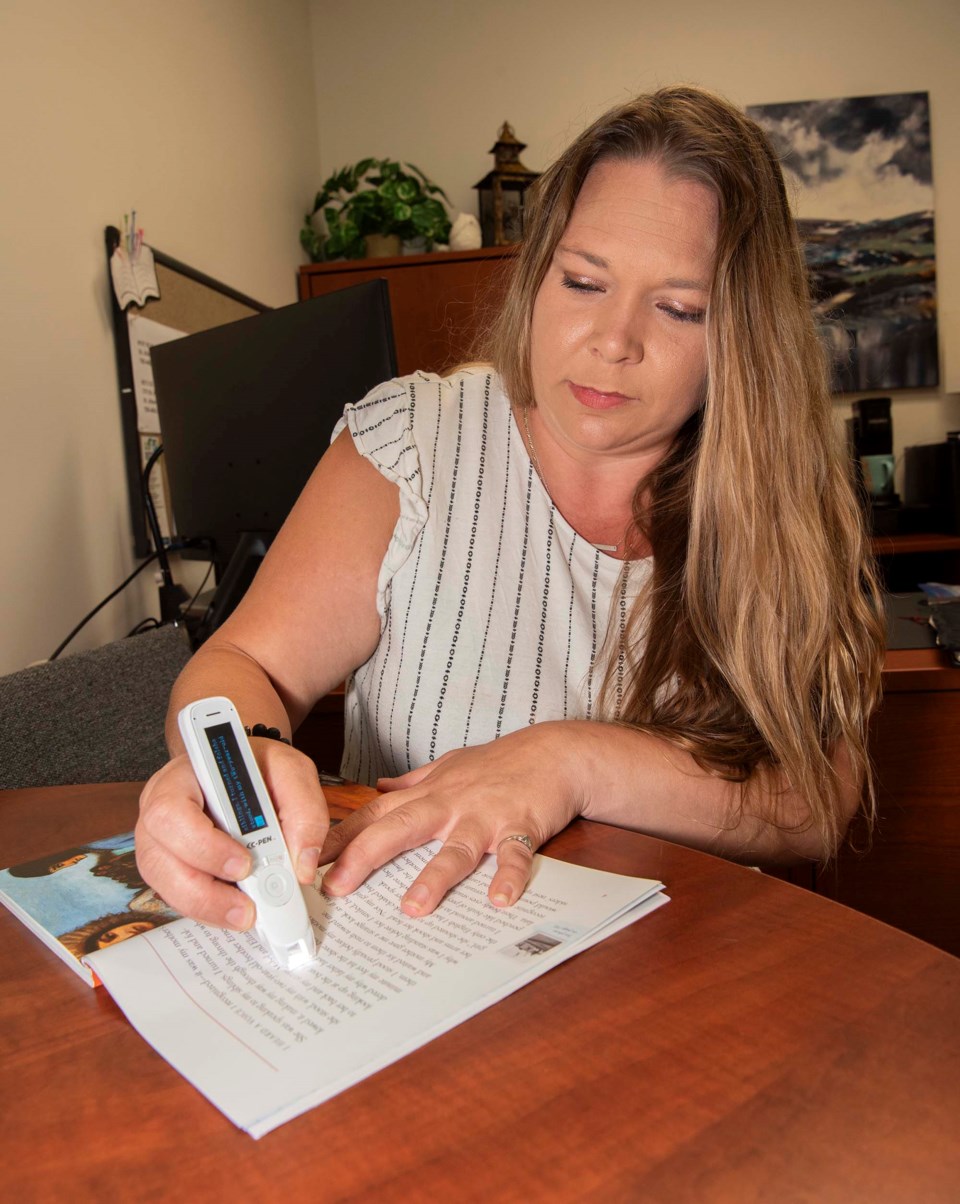Computer screens. Restaurant menus. Letters from her daughter’s school.
Up until recently, St. Albert parent Amanda Ford struggled to read any of these items due to dyslexia, which made finding a job and living life frustrating.
Now, with the help of an electronic pen from the St. Albert & District Further Education Association, she can simply scan those words and hear them spoken aloud.
“If I go to a restaurant, I don’t have to ask someone, ‘What is this?’” Ford said.
“I’m not sitting there wanting to cry because I don’t know what it says.”
Ford is the first of what former association executive director and current volunteer Cheryl Dumont hopes will be many St. Albert residents that will learn to read using a C-Pen — a pen-like text-to-speech device. She and current association executive director Cheryl Semeniuk are calling on the public to raise funds to get more of these devices to help those with learning disabilities.
These pens were “life-changing” devices that could help Canadians who struggle with dyslexia and other reading-related disorders gain confidence, find jobs, and get out of poverty, Dumont said.
“It helps give them the idea they can become learners.”
Reading tool
Dyslexia is a neurobiological learning disability characterized by difficulties in word recognition and spelling, Dyslexia Canada reports. Some 10 to 20 per cent of people have it or a similar language-based learning disability.
“Many people with dyslexia do not graduate from high school,” Dumont said, and that makes it very difficult for them to find jobs.
Ford said she found school a frustrating experience as teachers didn’t have the time or expertise to help treat her dyslexia. While she could use a tabletop scanner to have a computer read text to her, the process was so cumbersome she didn’t bother.
“I wish we had these [pens] when I was in school,” she said.
Reading with dyslexia is like an average person trying to read ancient Sumerian, said Christina White Prosser, an adult learning specialist at the University of Calgary who is studying the use of the C-Pen to treat learning disorders — you have to struggle to decode every letter and word. The C-Pen (like many text-to-speech readers) scans words and reads them aloud to aid comprehension. It also has a built-in dictionary.
White Prosser said she was now doing a study with young adults at an Alberta correctional facility to see if these pens could help people learn to read. Initial results suggest the devices help users with focus, pronunciation, and reading comprehension.
“This is like glasses or a calculator,” she said of the pens.
“It’s not meant to be anything more than a tool that’s helpful for people that need it.”
Dumont said these pens could help many St. Albert Further Education clients learn English and apply for education or housing assistance. The association has just one of the pens now, but hopes to get about a dozen more if it can raise some $5,000.
Questions on the donation drive should go to Semeniuk at 780-460-2207.




